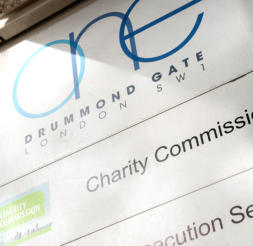Charity Commission guidance on the EU referendum “misrepresents the law in a number of areas”, contradicts both itself and other guidance, and must be “urgently amended or clarified”, a leading charity law firm has said.
A briefing produced by law firm Bates Wells Braithwaite says the new guidance is inconsistent with CC9, and does not reflect the underlying law on campaigning.
The new guidance had already courted controversy after OSCR, the Scottish charity regulator, produced guidance of its own which was significantly different in its interpretation of the law.
“We are concerned that the new guidance misrepresents the law in a number of areas, is contradictory in itself, in relation to the existing guidance and the Commission’s overriding guidance on campaigning and political activity,” the briefing says. “The new guidance also employs terminology which is inconsistent with other relevant Charity Commission guidance (such as CC9, which, unlike the new guidance, was subject to extensive sectoral consultation) and so is likely to confuse trustees, in a manner contrary to the Commission’s statutory duty to have regard to principles of best regulatory practice in performing its functions, including the principles under which regulatory activities should be accountable, consistent and transparent.”
From the Bates Wells Braithwaite briefing:
“The new guidance states that: ‘This guidance is for charities that may be considering public involvement in the debate leading to the European Union (EU) Referendum on 23 June 2016. Such activity will amount to political activity. Charities will need to be aware of what the law permits and does not permit them to do.’ We do not agree with the unqualified statement that ‘such activity will amount to political activity’.”
“We do not believe it is correct in law to imply that a test of ‘exceptionality’ applies to the question of whether or not it is appropriate for a charity to take a particular course of action. We do agree with the final statement in the existing guidance, that ‘The key question for the trustees is exactly how such an activity will be an effective way of promoting the objects of the charity’.”
“Our view is that references to advocating a particular outcome of a referendum being appropriate only 'in exceptional cases' should be removed from the new guidance and the existing guidance.”
“Although not strictly a legal issue, we have had numerous clients express concern to us about the overall tone of the guidance. In particular, concerns have been expressed that trustees may be deterred unnecessarily from taking action in support of their charity’s purposes by the repeated references to the potential for regulatory action to be taken by the Commission against charities which become involved in this debate.”
The Charity Commission is expected to respond shortly.
Separately, Francesca Quint, a barrister specialising in charity law, has today produced a briefing on the EU referendum, published on our website.









